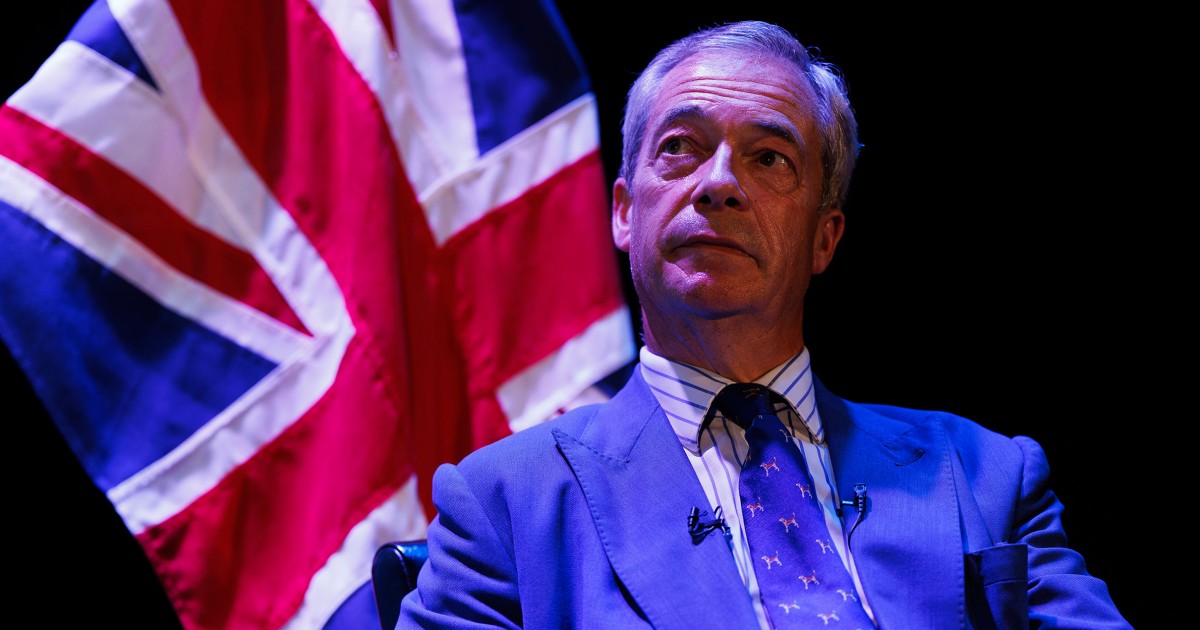Down-and-out U.K. coastal town looks set to elect Trump ally Nigel Farage

- by Admin
- July 3, 2024

Farage, an ebullient and media-friendly firebrand who has run seven unsuccessful campaigns for office in Britain, did not respond to requests for an interview.
His message lands for many in Clacton who hanker for a time when British holidaymakers flocked to seaside resorts like this one instead of looking to Europe and beyond for their summer travels. Now, economic inactivity hovers at over 40% in Clacton, nearly twice the national average of 21.3%, according to government labor data.
Economic woes
Economic growth remained sluggish across the U.K. after the global financial crisis of 2008, with the population grappling with the impacts of Brexit, Covid-19 and, more recently, an energy pricing surge. Since the pandemic, Britain has had the second weakest economy in the G7.
Dissatisfaction with the economy is widespread, with just 22% of people in the U.K. saying they believe the country’s economic situation is “good,” compared to 78% who say it’s in poor shape, according to a Pew Research Center poll.
With rising inflation, a nationwide cost-of-living crisis and the sense that basic services are failing, many here feel increasingly disenfranchised, disillusioned and dismissed by those in power in London.
“They just live in a different world, ivory towers,” Nicholas Phillips, 68, a full-time foster carer who has lived in Clacton his whole life, said of Labour leader Keir Starmer and Conservative Prime Minister Rishi Sunak.
“There’s no money for anything — we’ve got so many illegals,” said Phillips, using a derogatory term referring to migrants, asylum-seekers and refugees who arrive in the U.K. outside of legalized routes.
“We’re in dead trouble, like America,” he said at the pub, sitting alongside Hurling.
Signs of economic malaise abound around Hurling and Phillips, two childhood friends.
Trevor Hahn, a reverend at Christ Church, a local United Reformed Church in Clacton, said he has noticed more and more churchgoers asking for financial help and other assistance from the church.
Meanwhile, local real estate agent Jason Burton said his company has seen a significant increase in home sales because homeowners have fallen behind on their mortgages and other bills. Storefronts have sat empty for years due to soaring rental costs, he added.
Clacton encapsulates the wider political malaise affecting other parts of Britain, experts say, with low voter turnout widely anticipated in the upcoming election as many across the country feel increasingly politically homeless — and hopeless about the future.
Just over 67% of people registered to vote in the U.K.’s last general election in 2019 cast their ballots, compared with 68.8% in 2017. John Curtice, one of Britain’s leading polling experts, said he wouldn’t be surprised if voter turnout is “on the low side” again.
“There’s clearly considerable disenchantment for the current government, but there isn’t a lot of enthusiasm for the alternative,” he said.
Calling Farage “the most influential politician in 21st-century British politics,” Curtice added that in towns like Clacton, where disillusionment is particularly acute, an exceptional orator like Farage will attract support by promising to restore the country to what some see as its former glory.
Migration central
Much like his Brexit campaign, Farage’s election platform relies heavily on pledges to end mass immigration to the U.K., even though a recent poll by IPSOS suggests that voters are far more concerned about the economy and ailing health system.
Net migration to the U.K. soared in 2023 to an estimated 685,000, compared with pre-pandemic estimates of between 200,000 to 300,000, according to the Migration Observatory, part of Oxford University’s Centre on Migration, Policy and Society.
The rise came amid intensified government efforts to stop migrants, asylum-seekers and refugees from coming to the U.K. across the English Channel in small boats. In recent years, the U.K. saw a rise in the number of small boats detected crossing the English Channel, with their numbers rising to 46,000 in 2022, before dropping in 2023 down to around 29,000, according to government data.
Sunak pledged to address the issue in part by sending some asylum-seekers to Rwanda to await decisions on their cases — a move that sparked widespread condemnation from immigration and human rights organizations like the Office of the United Nations High Commissioner for Human Rights.
But in the eight years since the Brexit referendum, E.U. migration into the U.K. has dropped, while emigration of E.U. citizens from Britain has been on the rise, according to Robert McNeil, deputy director of the Migration Observatory.
This means that Brexit “successfully delivered what it said it was going to deliver” — a drop, particularly in “low-skilled migration” from E.U. member states, he said.
The Latest News
-
December 22, 2024Donald Trump picks Apprentice producer to be the US special envoy to UK
-
December 22, 2024Daily horoscope: December 22, 2024 astrological predictions for your star sign
-
December 21, 2024UK flights and ferries cancelled owing to high winds as Christmas getaway begins
-
December 21, 2024Prince Andrew plans to move to UAE amid espionage allegations: Report
-
December 21, 2024Inside Britain’s saddest shopping centre: Town centre mall empty just DAYS before Christmas as depressed locals say ‘it’s a disgrace’





